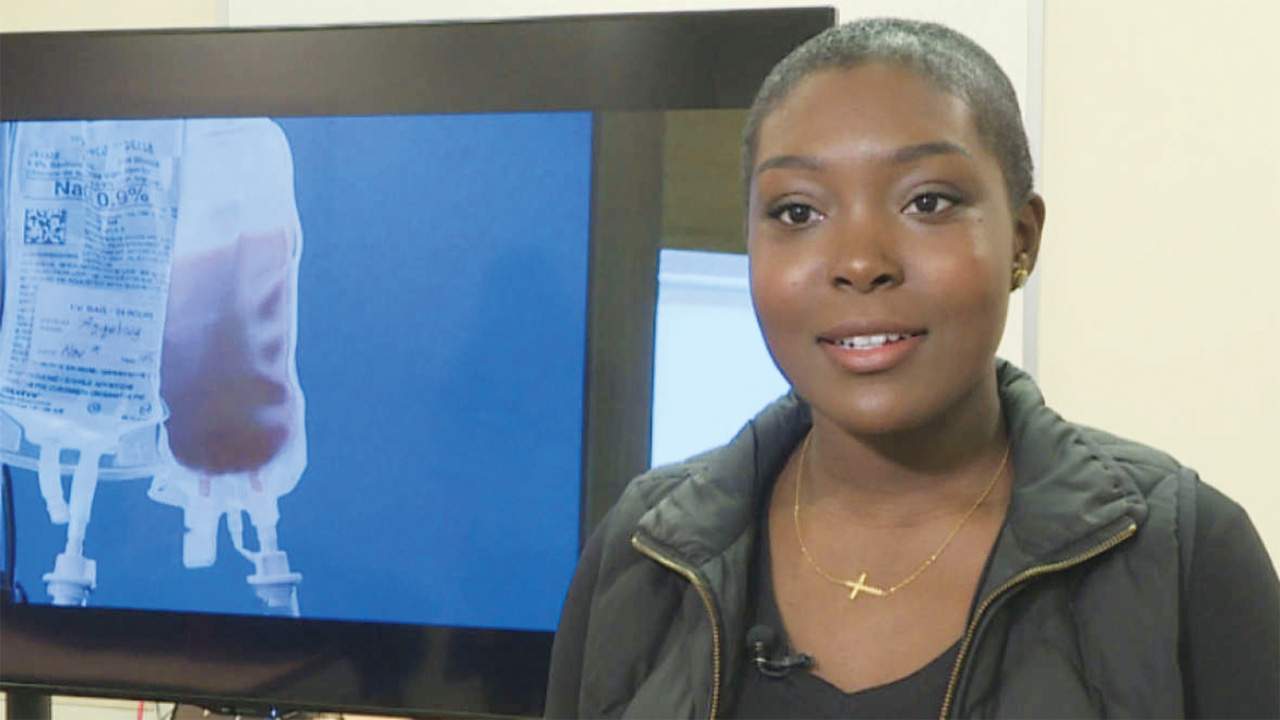While doctors always try to find a closely matched donor for patients who need a stem cell transplant, only 20 percent of sickle cell patients have a family member with a full set of matching HLA markers.
“We have made great strides curing adults with sickle cell disease with stem cell transplants, but the unfortunate truth is that the majority of these patients have, until now, been unable to benefit from this treatment because there are no fully-matched HLA-compatible donors available in their family,” said corresponding author Dr. Damiano Rondelli, the Michael Reese Professor of Hematology and director of the Blood and Marrow Transplant program at the University of Illinois at Chicago.
Rondelli and his team run the largest adult sickle cell program in the Chicago area and pioneered the use of chemotherapy-free fully-matched stem cell transplants for sickle cell patients nearly six years ago.
Now, by allowing for “half-matched” donors, the new treatment protocol, which uses only a small does chemotherapy, significantly increases the number of potential donors for each patient.
The doctors screened 50 adult sickle cell patients as candidates for a half-matched stem cell transplant between January 2014 and March 2017. Ten patients received a transplant. Following two unsuccessful transplants, the doctors adopted the new treatment protocol, which included modifications to a process first developed at Johns Hopkins University.
“We modified the transplant protocol by increasing the dose of radiation used before the transplant, and by infusing growth factor-mobilized peripheral blood stem cells instead of bone marrow cells,” Rondelli said. “These two modifications helped ensure the patient’s body could accept the healthy donor cells.”
Of the eight patients who underwent the revised transplant, one experienced chronic graft-versus-host disease following the transplant and died of unknown causes. The other seven patients are alive and maintain 95 percent or higher stable engraftment — acceptance of donor cells — with improved blood work at least 12 months following the transplant.
“These patients are cured of sickle cell disease,” Rondelli said.
“The takeaway message is twofold. First, this transplant protocol may cure many more adults patients with advanced sickle cell disease,” he said.
“Second, despite the increasing safety of the transplant protocols and new compatibility of HLA half-matched donors, many sickle cell patients still face barriers to care — of the patients we screened, only 20 percent underwent a transplant.”
Rondelli says that medical insurance denial accounted for 20 percent of the lack of access to the transplant. Other factors included personal decisions and high rates of donor-specific antigens in patients who had received frequent blood transfusions.

 Doctors at the University of Illinois Hospital have cured seven adult patients of sickle cell disease, an inherited blood disorder primarily affecting the black community, using stem cells from donors previously thought to be incompatible, thanks to a new transplant treatment protocol.
Doctors at the University of Illinois Hospital have cured seven adult patients of sickle cell disease, an inherited blood disorder primarily affecting the black community, using stem cells from donors previously thought to be incompatible, thanks to a new transplant treatment protocol.




